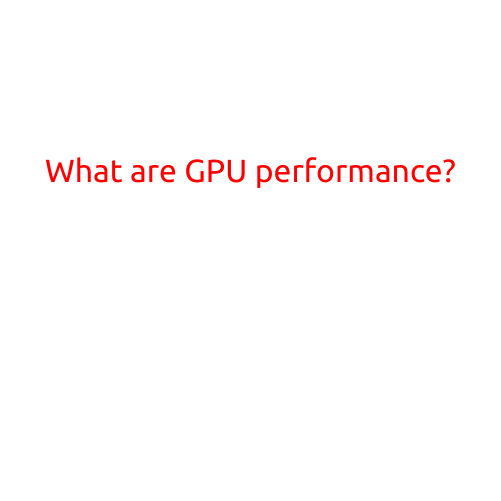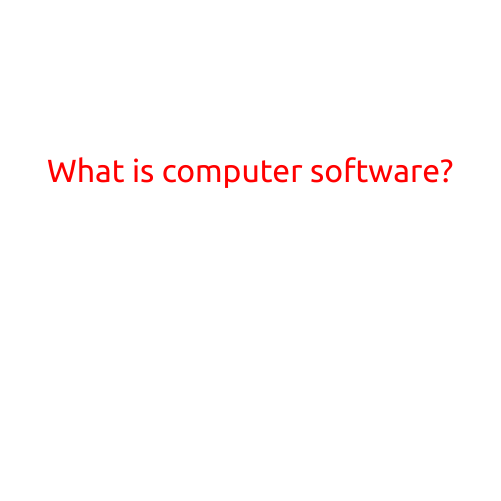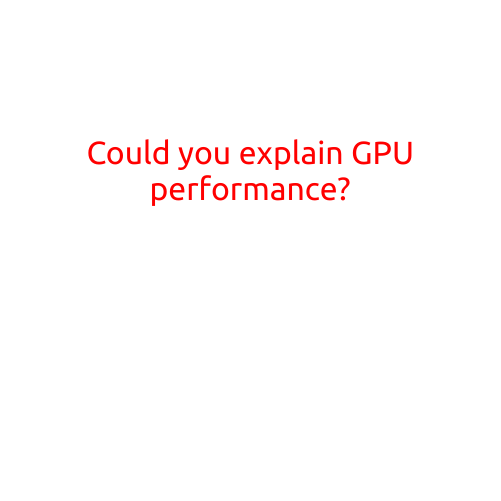
What are GPU Performance?
In the world of computers, graphics processing units (GPUs) play a crucial role in handling tasks that require intense computational power and graphic rendering. GPU performance refers to the ability of a graphics processing unit to efficiently handle these tasks, ensuring seamless performance and responsiveness.
What Affects GPU Performance?
Several factors influence GPU performance, including:
- Clock Speed: Measured in GHz, clock speed determines how fast the GPU can process instructions.
- Memory: The amount of dedicated video random access memory (VRAM) available to the GPU affects its ability to handle demanding tasks.
- Architecture: The design and architecture of the GPU, including the number of processing units, can greatly impact performance.
- Memory Bandwidth: The amount of data that can be transferred between the GPU and system memory per second affects rendering speed and overall performance.
- Compute Units: The number of compute units, also known as streaming multiprocessors (SMs), determines the GPU’s ability to perform complex calculations and tasks.
- ROPs (Rasters Operations Pipelines): ROPs are responsible for rendering final pixel colors and determining the GPU’s ability to handle complex graphics rendering.
How to Measure GPU Performance
There are several ways to measure GPU performance, including:
- Frames Per Second (FPS): Measuring the number of frames rendered per second provides an indication of the GPU’s ability to handle graphics rendering.
- Graphics Rendering Times: Measuring the time it takes for the GPU to render a scene or graphic provides insight into its rendering capabilities.
- Benchmarking Tools: Various benchmarking tools, such as 3DMark, Unigine Heaven, and FurMark, can be used to test and measure GPU performance under different conditions.
- Power Consumption: Measuring the power consumption of the GPU provides insight into its efficiency and potential heat generation.
Why is GPU Performance Important?
GPU performance is crucial for various applications, including:
- Gaming: High-performance GPUs ensure smooth gameplay, reduced lag, and improved graphics quality.
- Video Editing: Fast rendering and efficient processing of large video files rely on the GPU’s ability to perform complex calculations.
- Scientific Simulations: GPUs are used in various scientific simulations, such as weather forecasting and cryogenics, where fast processing is essential.
- Artificial Intelligence and Machine Learning: GPUs play a vital role in training and processing large datasets for AI and machine learning applications.
Conclusion
GPU performance is a critical aspect of modern computing, enabling fast and efficient processing of demanding tasks. Understanding the factors that affect GPU performance, as well as how to measure and optimize it, is essential for achieving optimal results in various applications. Whether you’re a gamer, video editor, or scientist, choosing the right GPU for your needs is crucial for achieving the best possible results.





